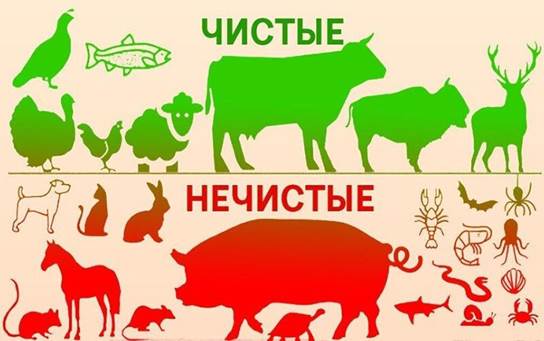Why are Jews allowed to eat giraffes, but not pigs, rabbits, camels and many other types of fish?
All my life I have loved to cook. Sometimes these are very simple things that professional chefs refer to as appetizers. They’re super easy to make, but they’re still delicious.

I didn’t cook it, I ate it. And Jews can’t do that
Some time ago, a friend posted on the Internet a photo of shrimp fried in oil with dill and rosemary. Well, she boasted to her acquaintances what a good young man she had. Of course, everyone was a little jealous and impressed. And only a Jewish friend from some murky areas said he couldn’t eat such a thing.
The dietary rules of religious Jews are traditionally called kashrut. They prescribe the consumption of animals that chew the food and have cloven hooves (i.e. artiodactyls and herbivores); Marine life – only those with scales and fins (e.g. oysters and shrimp – not allowed); birds – all but 24 prohibited species; of insects, reptiles and rodents, except grasshoppers, the traditional food of the nomads of Africa and Asia. There are many additional restrictions, the most well-known of which is the ban on mixing meat and dairy products.
But why is it forbidden for Jews to eat foods that other nations can eat without hesitation? What is the logic behind the strict rules of kashrut?

The Jewish (or rather, Jewish) answer to this question is very simple. As the scholars of Scripture say, there are rules in the Torah that can and should be understood with the help of reason and find a rational reason for them, and there are those that cannot be understood. It is believed that their main purpose is to demonstrate the greatness of God to the faithful. “Hashem commanded it,” every rabbi will say.
But if an unbeliever carefully studies the scriptures of all nations, he will have an answer to every question. And anyone who has read the Old Testament will notice very well the semantic lines that are present there. When the Jews became aware of themselves as a people, they were only concerned with one thing: survival.
- To achieve this, it was necessary to create some kind of just society in which all social groups would obey the general laws, which was done.
- To do this, it was necessary to observe the hygiene rules. And this point is very strongly felt in the Torah, which commands its followers to wash, abstain from physical contact at a certain moment and not to eat unclean foods.
- To do this, it was necessary that the Jews should not mix with other tribes and that the seven hostile peoples of Canaan should be sent to the other world.

It seems that the rules of kashrut are among the restrictions of the second order. Certain types of food are prohibited because they do not comply with hygiene rules. Pork spoils quickly in the desert and in hot climates, because there were no refrigerators in Moses’ day. Mollusks are living water filters. Would you eat the contents of a garbage bag from your vacuum cleaner?
In other words, Jews try to understand these prohibitions with the help of logic. But logic often gives way in this case. Even the word kashrut itself is translated as suitable (not ritually and physically pure) food. Hygiene has nothing to do with it. The tribes of Canaan had eaten pork throughout their history and lived in the same climate as the Hebrews. The Phoenicians have been eating seafood for centuries and eating everything without any problems. The Arabs eat camels and hares, which are forbidden to devout Jews.
Therefore, kashrut is not at all about protecting the health of one’s own people. Apparently, this is one of the prohibitions of the third order. Its purpose is to show all Jews that we are and that they are. Other nations not to mix with. Kashrut distinguishes between one’s own ethnicity and other people and is something like archaic apartheid. Or segregation, if that’s the word you prefer.

In addition, kashrut is something like wearing a wedding ring. You should always remember that you are married and doing the right thing. That is, food restrictions are a constant reminder to Jews that they have a special relationship with God.
